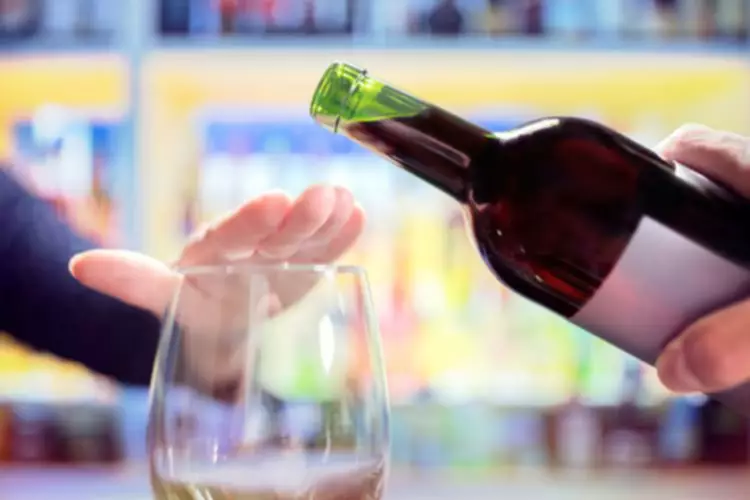These 5 Surprising Factors Are Secretly Aging You Faster

Alcohol dehydrates women more and just a drink may be enough to cause flare-ups. People typically see a progressive drop of collagen levels, which is an important structural protein as we age. Nevertheless, as you’re given more prescription medications in your late 50s and 60s, be aware of how they interact with alcohol.

Drink moderately (if at all)

You might find yourself wanting a drink even at inappropriate times. When you can’t reach for a drink, you might feel unfocused or irritated. Alcohol can exacerbate conditions that are common in older individuals, such as high blood pressure, osteoporosis, diabetes, liver problems, ulcers, or impaired memory.
- Email and text messages are useful for sharing daily life updates and photos.
- Red wine has caused debate among researchers for quite some time.
- As we age, our bodies metabolize alcohol differently than when we were younger, so our drinking habits need to change.
- Regular alcohol consumption is a major risk factor for liver disease and head and neck cancer, and chronic alcohol use has been linked with an acceleration of age-related cognitive decline and brain atrophy.
- Don’t start drinking now, thinking it will make you healthier.
Myth: I should start drinking red wine to stay healthy
Take our short alcohol quiz to learn where you fall on the drinking spectrum and if you might benefit from quitting or cutting back on alcohol. One of the best things you can do for your all-around health and https://ecosoberhouse.com/ appearance is to drink less alcohol. But at Ria Health, we recognize that this can be easier said than done. Many people struggle with alcohol dependency, and it can be hard to know how to begin to cut back.
Alcohol and AgingEffects of Drinking in Older Adults and How to Cut Back
Promises Behavioral Health has the resources to help you through every step of your journey toward sobriety. We’ll work with you to develop a treatment plan tailored to your specific needs based on evidence-based practices and proven therapeutic interventions. Overall, when consumed regularly in high quantities, alcohol ages the body faster than natural processes allow. It may alarm you to know precisely how drinking ages you.

Some types of dementia and alcohol-related brain damage develop as your brain cells shrink. Over time, heavy drinking can lead to loss of judgment, focus, and memory. You may have more trouble regulating your emotions or managing your coordination. Alcohol can affect the way some vital organs work and make them age faster.
Alcohol in moderation is key
Consider your current health conditions and medications before you drink. A chief reason for these more damaging effects is changes in the liver — the primary organ that processes alcohol when it’s consumed. Older people are not able to metabolize alcohol as well as younger people because of a decrease in the activation level of specific liver enzymes. But drinking like you used to can lead to even bigger problems.
Alcohol reduces the amount of vasopressin that your body makes. That’s why you often have to urinate more frequently when you’re drinking. Alcohol tolerance tends to decrease as we age due to changes in our bodies as we get older, such as reduced liver function and decreased muscle mass. As you get older, you have less water in your body and -- for reasons that aren’t quite clear --you also feel thirsty less often. Drinking alcohol can pull more water out of your body and make your chances of dehydration even higher. According to a 2021 National Survey on Drug Use and Health, 62% of people age 12 years or older consumed alcohol in the past year and 21.5% of that group binged alcohol in the past month.
- Most medications and alcohol don’t interact well with each other.
- If you already drink, it’s probably okay to continue enjoying the habit in moderation.
- Research has found that having as little as one alcoholic beverage per day increases a woman’s risk of breast cancer, especially for estrogen-receptor positive tumors.
- Specific times, such as weekends or evenings, might serve as a cue that it’s time to drink.
"Look at your whole lifestyle, and make small, sustainable changes one at a time until they are habits." Regular drinkers can trigger biological functions that make them age does alcohol make you look older from the inside out. If you drink heavily or consistently, you could activate the aging process, putting you at risk of health conditions that typically affect older people.

Trial Shows That Resistant Starch May Reduce Hereditary Cancer Risk
Alcohol can affect the way your body fights off life-threatening illnesses like tuberculosis or pneumonia. Researchers are also studying the possibility that alcoholic liver disease might be caused, at least in part, by your immune system attacking healthy body tissues. It’s a natural process called intrinsic aging, and it’s something you can’t control.


